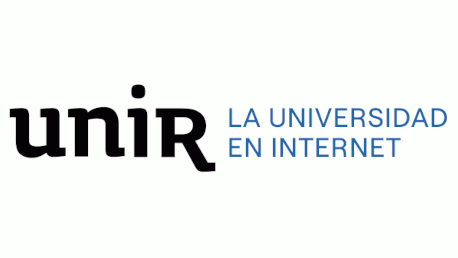Intermediate.


Si has realizado este curso, ¿por qué no darnos tu opinión?. Si lo haces, estarás ayudando a miles de personas que, como tu en su momento, están intentando cambiar su vida a través de la formación. No hay mejor ayuda, para decidirse entre miles de cursos, que la opinión de una persona que ha vivido la experiencia de cursarlo, miles de personas te lo agradecerán.
Danos tu opinión detallada sobre el Intermediate.. No olvides decirnos que te pareció el temario del curso, el profesorado, la accesibilidad al equipo del centro para resolver tus dudas y, en el caso de los programas online, la calidad del campus virtual.
MATERIAL
Acceso al contenido de los cursos mediante la Plataforma virtual o Campus On-Line de Formación Educa, Total Libertad de Horarios, Tutor Especializado, Servicios de Tutorías a Distancia y Sistema Multimedia.
INFORMACIÓN ADICIONAL
El curso va dirigido tanto a profesionales como a otros colectivos que deseen una formación en nuevas e interesantes materias de estudio, enriqueciendo su propio conocimiento y ampliando sus dimensiones profesionales.
El pago del curso se realiza por transferencia bancaria y lleva incluido los gastos para la Certificación Acreditativa de finalización de la actividad.
Descripción For those ones who have got a middle-low level of English and who wish not to lose the knowledge which they have already got, and at the same time want to improve their level of pronunciation and their reading understanding. This course is wonderful for those ones interested in learning in a natural and easy way, emphasizing the verb tenses and the vocabulary. [TRANSLATED] Para aquellos que tengan un nivel medio-bajo de inglés y deseen no perder los conocimientos que ya poseen, y a la vez que quieran mejorar su nivel de pronunciación y de comprensión lectora. Este curso es fantástico para aquellos interesados en aprender de manera natural y sencilla, poniendo énfasis en los tiempos verbales y en el vocabulario.
English Intermediate Block 7
In this block the student will learn how to talk about what you do in your free time will be learnt, at the same time situations related to the daily work or the housework will appear. The student will learn how to face these situations in a real context. Regarding grammar, the past, the present and the future simple tenses will be revised. [TRANSLATED] En este bloque el alumno aprenderá como hablar sobre lo que haces en tu tiempo libre, a la vez que también aparecerán situaciones referidas al trabajo diario, o bien al trabajo doméstico. El alumno aprenderá cómo hacer frente a estas situaciones en un contexto real. En relación a la gramática, se revisarán los tiempos verbales del pasado, del presente y del futuro simple.
1. Doing market research Part 1
Functions: Talking about habitual actions. Talking about actions in progress. Expressing likes and
dislikes. Talking about work and leisure.
Grammar: Present continuous. Present simple. Expressions of frequency.
Vocabulary: Work & Leisure. Games & Sports.
2. Doing market research Part 2
Functions: Talking about habitual actions. Talking about actions in progress. Expressing likes and
dislikes. Talking about work and leisure.
Grammar: Present continuous. Present simple. Expressions of frequency.
Vocabulary: Work & Leisure. Games & Sports.
3. Doing market research Part 3
Functions: Talking about habitual actions. Talking about actions in progress. Expressing likes and
dislikes. Talking about work and leisure.
Grammar: Present continuous. Present simple. Expressions of frequency.
Vocabulary: Work & Leisure. Games & Sports.
4. Remembering old times Part 1
Functions: Narrating. Expressing habitual actions in the past. Stating past situations. Comparing.
Describing a house.
Grammar: Past continuous. Past simple. There was / there were. Used to. Comparisons.
Vocabulary: The family. In-laws. Description of a house.
5. Remembering old times Part 2
Functions: Narrating. Expressing habitual actions in the past. Stating past situations. Comparing.
Describing a house.
Grammar: Past continuous. Past simple. There was / there were. Used to. Comparisons.
Vocabulary: The family. In-laws. Description of a house.
6. Remembering old times Part 3
Functions: Narrating. Expressing habitual actions in the past. Stating past situations. Comparing.
Describing a house.
Grammar: Past continuous. Past simple. There was / there were. Used to. Comparisons.
Vocabulary: The family. In-laws. Description of a house.
7. Making plans for holidays Part 1
Functions: Talking about recent past. Talking about tourism. Stressing words correctly. Travelling.
Grammar: Present perfect vs. Past simple. Still, yet, already. Just / Ever.
Vocabulary: Tourism. Experiences.
8. Making plans for holidays Part 2
Functions: Talking about recent past. Talking about tourism. Stressing words correctly. Travelling.
Grammar: Present perfect vs. Past simple. Still, yet, already. Just / Ever.
Vocabulary: Tourism. Experiences.
9. Making plans for holidays Part 3
Functions: Talking about recent past. Talking about tourism. Stressing words correctly. Travelling.
Grammar: Present perfect vs. Past simple. Still, yet, already. Just / Ever.
Vocabulary: Tourism. Experiences.
10. One fortnight in Austria Part 1
Functions: Expressing movement. Making an appointment. Making plans. Expressing intention. Making predictions. Talking about films and TV programmes.
Grammar: Present continuous with future reference. Going to. Future with will. Prepositions of movement.
Vocabulary: Pastimes. Excursions. Films. Competitions.
11. One fortnight in Austria Part 2
Functions: Expressing movement. Making an appointment. Making plans. Expressing intention. Making predictions. Talking about films and TV programmes.
Grammar: Present continuous with future reference. Going to. Future with will. Prepositions of movement.
Vocabulary: Pastimes. Excursions. Films. Competitions.
12. One fortnight in Austria Part 3
Functions: Expressing movement. Making an appointment. Making plans. Expressing intention. Making predictions. Talking about films and TV programmes.
Grammar: Present continuous with future reference. Going to. Future with will. Prepositions of movement.
Vocabulary: Pastimes. Excursions. Films. Competitions.
13. Housework I Part 1
Functions: Giving and asking for permission. Expressing obligation or lack of it. Expressing prohibition. Advising. Talking about housework.
Grammar: Modal verbs: can, could, must, have to, should, ought to. Uses of do and make.
Vocabulary: Housework. Do / Make.
14. Housework I Part 2
Functions: Giving and asking for permission. Expressing obligation or lack of it. Expressing prohibition. Advising. Talking about housework.
Grammar: Modal verbs: can, could, must, have to, should, ought to. Uses of do and make.
Vocabulary: Housework. Do / Make.
15. Housework I Part 3
Functions: Giving and asking for permission. Expressing obligation or lack of it. Expressing prohibition. Advising. Talking about housework.
Grammar: Modal verbs: can, could, must, have to, should, ought to. Uses of do and make.
Vocabulary: Housework. Do / Make.
16. Housework II Part 1
This lesson provides a choice of revision or extension activities.
17. Housework II Part 2
This lesson provides a choice of revision or extension activities.
18. Housework II Part 3
This lesson provides a choice of revision or extension activities.
English Intermediate Block 8
In block 8 how to describe people's personality will be explained, the differences in vocabulary between the American and the British English will also been explained as well as the differences that there are between certain verbs which have got the same translation in Spanish, but which are used in different contexts in English, as for example the case of expect, hope and wait. [TRANSLATED] En el bloque 8 se explicará como describir la personalidad de las personas, también se explicarán las diferencias de vocabulario que hay entre el inglés americano y británico, así como las diferencias que hay entre determinados verbos que en español tienen la misma traducción, pero que en inglés se utilizan en diferentes contextos, como por ejemplo el caso de expect, hope y wait.
1. Amanda´s plans Part 1
Functions: Expressing possibility. Making deductions. Expressing quantity.
Grammar: Modal verbs: May, might, could, must, can’t. Quantifiers.
Vocabulary: The weather. Women’s jobs. Expect vs. Hope vs. Wait.
2. Amanda´s plans Part 2
Functions: Expressing possibility. Making deductions. Expressing quantity.
Grammar: Modal verbs: May, might, could, must, can’t. Quantifiers.
Vocabulary: The weather. Women’s jobs. Expect vs. Hope vs. Wait.
3. Amanda´s plans Part 3
Functions: Expressing possibility. Making deductions. Expressing quantity.
Grammar: Modal verbs: May, might, could, must, can’t. Quantifiers.
Vocabulary: The weather. Women’s jobs. Expect vs. Hope vs. Wait.
4. Looking for a temporary job Part 1
Functions: Talking about conditions and their consequences. Expressing two possibilities. Refusing both possibilities.
Grammar: First conditional. Second conditional. Reflexive pronouns. Either...or / Neither...nor.
Vocabulary: Employment. The zoo. Stress-free life.
5. Looking for a temporary job Part 2
Functions: Talking about conditions and their consequences. Expressing two possibilities. Refusing both possibilities.
Grammar: First conditional. Second conditional. Reflexive pronouns. Either...or / Neither...nor.
Vocabulary: Employment. The zoo. Stress-free life.
6. Looking for a temporary job Part 3
Functions: Talking about conditions and their consequences. Expressing two possibilities. Refusing both possibilities.
Grammar: First conditional. Second conditional. Reflexive pronouns. Either...or / Neither...nor.
Vocabulary: Employment. The zoo. Stress-free life.
7. Working with animals Part 1
Functions: Narrating a sequence of actions. Giving directions. Talking about actions in progress in the recent past.
Grammar: Present perfect continuous. Before, after, while, etc.
Vocabulary: Public places. Entertainment.
8. Working with animals Part 2
Functions: Narrating a sequence of actions. Giving directions. Talking about actions in progress in the recent past.
Grammar: Present perfect continuous. Before, after, while, etc.
Vocabulary: Public places. Entertainment.
9. Working with animals Part 3
Functions: Narrating a sequence of actions. Giving directions. Talking about actions in progress in the recent past.
Grammar: Present perfect continuous. Before, after, while, etc.
Vocabulary: Public places. Entertainment.
10. It is a bargain! Making a complaint Part 1
Functions: Describing moods. Emphasising. Expressing past in the past.
Grammar: Past perfect simple. Past perfect continuous. Adjectives with participle or gerund form.
Emphatic forms: so / such.
Vocabulary: Moods & personality. The Sales. Adjectives ending in -ing and -ed.
11. It is a bargain! Making a complaint Part 2
Functions: Describing moods. Emphasising. Expressing past in the past.
Grammar: Past perfect simple. Past perfect continuous. Adjectives with participle or gerund form.
Emphatic forms: so / such.
Vocabulary: Moods & personality. The Sales. Adjectives ending in -ing and -ed.
12. It is a bargain! Making a complaint Part 3
Functions: Describing moods. Emphasising. Expressing past in the past.
Grammar: Past perfect simple. Past perfect continuous. Adjectives with participle or gerund form.
Emphatic forms: so / such.
Vocabulary: Moods & personality. The Sales. Adjectives ending in -ing and -ed.
13. Meeting Rick Part 1
Functions: Inviting. Making offers. Accepting invitations or offers. Refusing invitations or offers. Reporting statements.
Grammar: Reported statements. Infinitive vs. Gerund.
Vocabulary: Personality description. American vocabulary. Adverbs of manner. Verbs of expression:
explain, promise, refuse, suggest, invite, etc.
14. Meeting Rick Part 2
Functions: Inviting. Making offers. Accepting invitations or offers. Refusing invitations or offers. Reporting statements.
Grammar: Reported statements. Infinitive vs. Gerund.
Vocabulary: Personality description. American vocabulary. Adverbs of manner. Verbs of expression:
explain, promise, refuse, suggest, invite, etc.
15. Meeting Rick Part 3
Functions: Inviting. Making offers. Accepting invitations or offers. Refusing invitations or offers. Reporting statements.
Grammar: Reported statements. Infinitive vs. Gerund.
Vocabulary: Personality description. American vocabulary. Adverbs of manner. Verbs of expression:
explain, promise, refuse, suggest, invite, etc.
16. You are only young once, Mum!! Part 1
17. You are only young once, Mum!! Part 2
18. You are only young once, Mum!! Part 3
This lesson provides a choice of revision or extension activities.
This lesson provides a choice of revision or extension activities.
This lesson provides a choice of revision or extension activities.
English Intermediate Block 9
The student will find this block very interesting because topics related to education, ecology, health and the spiritual life are dealt in it. Besides, in the grammatical section the passive voice, and the conditional will be seen. [TRANSLATED] El alumno encontrará muy interesante este bloque porque en él se tratarán temas como la educación, la ecología, la salud y la vida espiritual. Además, en el apartado gramatical, se verá la voz pasiva, y el condicional.
1. Sean works in the radio Part 1
Functions: Defining an object or a person. Giving extra information about an object or a person. Asking for information in a formal way. Asking for and expressing opinion.
Grammar: Relative clauses: Defining & Non-defining. Indirect questions.
Vocabulary: Ecology. Environment.
2. Sean works in the radio Part 2
Functions: Defining an object or a person. Giving extra information about an object or a person. Asking for information in a formal way. Asking for and expressing opinion.
Grammar: Relative clauses: Defining & Non-defining. Indirect questions.
Vocabulary: Ecology. Environment.
3. Sean works in the radio Part 3
Functions: Defining an object or a person. Giving extra information about an object or a person. Asking for information in a formal way. Asking for and expressing opinion.
Grammar: Relative clauses: Defining & Non-defining. Indirect questions.
Vocabulary: Ecology. Environment.
4. Bad news! Part 1
Functions: Making deductions about the past. Regretting past actions. Connecting ideas.
Grammar: Modal verbs with perfect tenses. I wish / If only. Perfect conditional. Connectors.
Vocabulary: The news. Politics. Homophones. Connectors.
5. Bad news! Part 2
Functions: Making deductions about the past. Regretting past actions. Connecting ideas.
Grammar: Modal verbs with perfect tenses. I wish / If only. Perfect conditional. Connectors.
Vocabulary: The news. Politics. Homophones. Connectors.
6. Bad news! Part 3
Functions: Making deductions about the past. Regretting past actions. Connecting ideas.
Grammar: Modal verbs with perfect tenses. I wish / If only. Perfect conditional. Connectors.
Vocabulary: The news. Politics. Homophones. Connectors.
7. Interviewing a headmaster Part 1
Functions: Giving permission. Talking about abilities. Talking about impossible facts in the present due to unfulfilled conditions in the past.
Grammar: Third conditional. Verb + Object + Infinitive. Modal verbs and similar structures: can, may, to be allowed to / can, could, be able to.
Vocabulary: Education. School subjects. Learning techniques.
8. Interviewing a headmaster Part 2
Functions: Giving permission. Talking about abilities. Talking about impossible facts in the present due to unfulfilled conditions in the past.
Grammar: Third conditional. Verb + Object + Infinitive. Modal verbs and similar structures: can, may, to be allowed to / can, could, be able to.
Vocabulary: Education. School subjects. Learning techniques.
9. Interviewing a headmaster Part 3
Functions: Giving permission. Talking about abilities. Talking about impossible facts in the present due to unfulfilled conditions in the past. Grammar: Third conditional. Verb + Object + Infinitive. Modal verbs and similar structures: can, may, to be allowed to / can, could, be able to.
Vocabulary: Education. School subjects. Learning techniques.
10. I have to see a doctor! Part 1
Functions: Reporting commands. Reporting questions. Explaining cause.
Grammar: Reported questions. Reported commands. Modals in reported speech. Because, as, since vs. because of, due to.
Vocabulary: Health & Medicine. Healthy eating. Health farms.
11. I have to see a doctor! Part 2
Functions: Reporting commands. Reporting questions. Explaining cause.
Grammar: Reported questions. Reported commands. Modals in reported speech. Because, as, since vs. because of, due to.
Vocabulary: Health & Medicine. Healthy eating. Health farms.
12. I have to see a doctor! Part 3
Functions: Reporting commands. Reporting questions. Explaining cause.
Grammar: Reported questions. Reported commands. Modals in reported speech. Because, as, since vs. because of, due to.
Vocabulary: Health & Medicine. Healthy eating. Health farms.
13. You need a retreat Part 1
Functions: Expressing purpose. Talking about different religions. Describing a process.
Grammar: Passive voice. The passive form of sentences with two objects. Have something done.
Purpose: to + verb, for + noun, so that + clause.
Vocabulary: Spiritual life. Religions. American words.
14. You need a retreat Part 2
Functions: Expressing purpose. Talking about different religions. Describing a process.
Grammar: Passive voice. The passive form of sentences with two objects. Have something done.
Purpose: to + verb, for + noun, so that + clause.
Vocabulary: Spiritual life. Religions. American words.
15. You need a retreat Part 3
Functions: Expressing purpose. Talking about different religions. Describing a process.
Grammar: Passive voice. The passive form of sentences with two objects. Have something done.
Purpose: to + verb, for + noun, so that + clause.
Vocabulary: Spiritual life. Religions. American words.
16. Margaret's family is moving Part 1
17. Margaret's family is moving Part 2
18. Margaret's family is moving Part 3
This lesson provides a choice of revision or extension activities.

